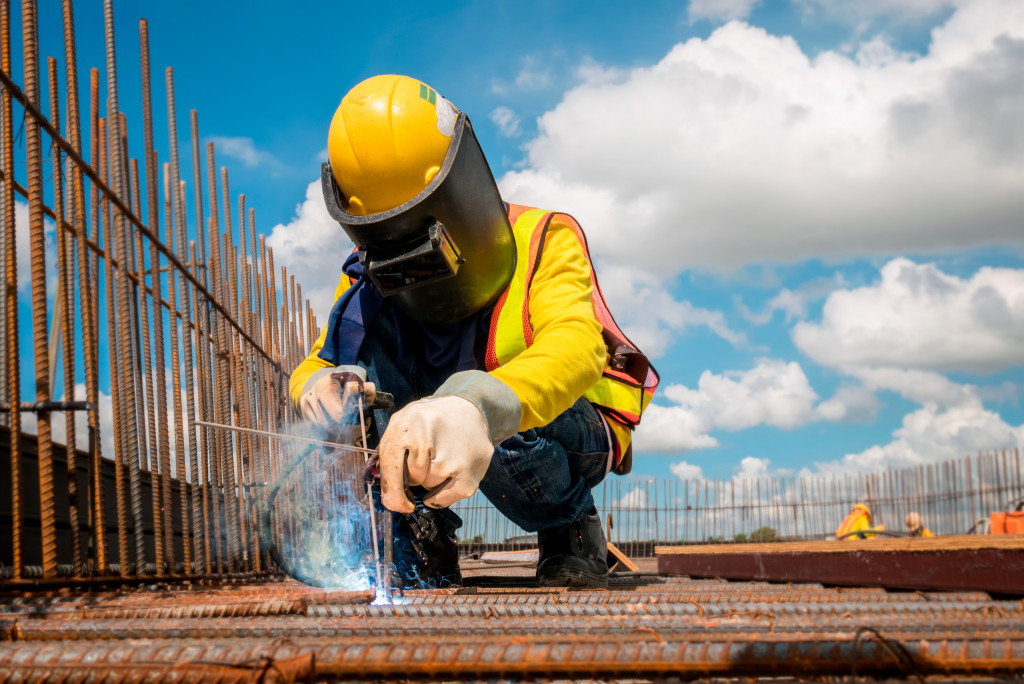- Human activities have caused global warming, pushing the average temperature to 1.5 degrees Celsius in the coming decades.
- Sustainable construction involves creating innovative solutions that meet present and future needs of the environment, economy, and social aspects.
- Sustainable building practices can lead to significant cost savings and help retain/attract talent.
- Businesses should manage waste reduction, reduce energy consumption, and minimize the use of natural resources to be environmentally responsible.
- Collaborating with stakeholders is essential for promoting sustainable practices.
The 2021 Sixth Assessment Report by the Intergovernmental Panel on Climate Change (IPCC) discovered that human activities have caused the Earth’s temperature to increase by almost two degrees Fahrenheit since the pre-Industrial period. This global warming is predicted to push the average temperature to 1.5 degrees Celsius in the coming decades, affecting all parts of the planet.
As climate change continues to be an increasing concern globally, the construction industry has been called to action to participate in sustainable initiatives. Sustainable construction involves the creation of innovative and sustainable solutions that meet the present and future needs of the environment, economy, and social aspects.

Being mindful of the environment and implementing sustainable practices throughout the construction process is a social responsibility and an opportunity to reduce cost and environmental impact.
This blog post will guide businesses toward environmentally responsible operations in the construction industry, outlining the benefits of sustainable building practices and addressing key considerations.
The Benefits of Sustainable Building Practices
Sustainable building practices go beyond environmental considerations, providing numerous benefits to businesses. By incorporating sustainability into construction, businesses can improve overall business operations through minimized energy use, reduced waste, and improved environmental health.
Ample Evidence
There is ample evidence that adopting sustainable building practices can lead to significant cost savings, mainly by reducing energy and water usage, waste, and emissions. Sustainable practices are also an opportunity for businesses to retain and attract talent, as research shows that employees are more likely to work at a company that values sustainability.
Enhanced Health & Wellness
Sustainable building practices not only benefit the environment but also improve the health and wellness of occupants. By incorporating renewable energy sources, green materials, increased natural daylighting, improved ventilation, and other sustainable construction elements into a building, businesses can reduce their environmental impact while improving the quality of air indoors for workers.
Critical Considerations for Environmentally Responsible Operations
Resource efficiency, minimizing waste, and environmental protection are critical considerations for environmentally responsible operations in the construction industry.
Manage Waste Reduction
One key consideration is ensuring that the construction site is effectively managed through waste reduction and taking steps towards energy-efficient solutions to lessen the environmental impact. To facilitate this, the business should work with a company offering a reliable stormwater management plan. This should include oil and grease interceptors, sediment control bags, and silt barriers.
Reduce Energy Consumption
Another critical consideration for businesses is to reduce energy consumption on the construction site. This can be achieved through implementing energy-efficient strategies such as using LED lighting systems and installing insulation in walls and roofs, utilizing renewable energy sources, and utilizing smart building technology to monitor energy usage.
Minimize the Use of Natural Resources
Lastly, businesses should strive to minimize the use of natural resources as part of their commitment to sustainability. This can be achieved by using recycled materials in construction projects and reducing water usage wherever possible by incorporating low-flow fixtures and appliances into the building design.
Sustainability as Part of the Business Strategy
Sustainability should be integrated into the overall business strategy for optimal results. Business owners and entrepreneurs should approach sustainability as part of the business model.
Sustainable Practices
One of the best ways to do so is by implementing sustainable practices from the start of the construction project, ensuring that the environmental impact is considered throughout the process.
Stand Out in the Industry
Businesses should also view sustainability as an opportunity to differentiate themselves within the construction industry, aligning with the growing trend of eco-conscious decision-making. This could include using sustainable materials, adopting green building strategies, and continuously assessing the effectiveness of their operations to environmental standards.

The Importance of Partnership and Collaboration
Businesses should operate in collaboration with sustainable practices. Collaboration and partnership are essential in promoting and executing sustainable construction initiatives and practices.
Join Organizations
This could come from joining organizations such as the United Nations Global Compact or networking with businesses that operate sustainably. Engagement with stakeholders such as local government entities, non-government organizations, and the community is also essential in implementing sustainable practices.
Partnerships
Developing partnerships with other organizations and businesses focused on positively impacting the environment can help pool resources, expand opportunities for sustainability projects, increase access to best practices, and develop innovative solutions.
Being responsible and environmentally conscious is a smart business choice. The construction industry is uniquely positioned to be at the forefront of sustainability initiatives. Adopting ecologically responsible operations requires businesses to be mindful of resource efficiency, minimizing waste, and environmental protection. Companies must integrate sustainability into their business strategy from the start, and collaboration with stakeholders is essential in promoting sustainable practices. By implementing environmentally responsible operations in the construction industry, businesses can experience cost reduction, improve overall business operations, and reduce environmental impact.
